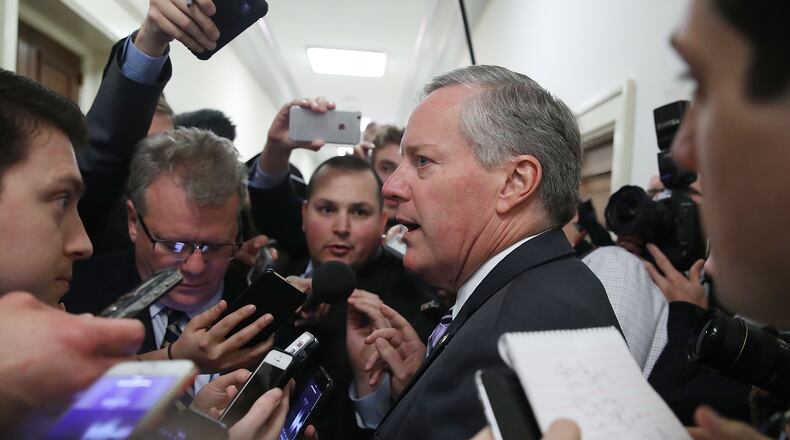Supporters say the bill makes much needed changes to the Affordable Care Act (ACA), which President Trump promised to repeal and replace after seven years of Congressional Republican’s efforts to dismantle the law on the grounds that it is too costly and inaccessible for many Americans.
RELATED: Obamacare changes lead to price increases
But the proposed changes have created a dilemma for stakeholders, including lawmakers and insurance carriers who would like to see improvements in the ACA, commonly known as Obamacare, but are loathe to sacrifice access to health care for millions of their members and constituents.
Dayton-based CareSource, a nonprofit Medicaid manged care provider and commercial health insurer with more than 1.5 million members, on Wednesday sent a letter to Ohio’s Congressional Delegation, urging lawmakers to be wary of the unintended consequences of the AHCA, which some are now calling Trumpcare.
“There are few who would disagree with the assertion that, regardless of the outcome of last November’s election, the Affordable Care Act (ACA) has challenges that need to be addressed legislatively,” the letter reads. “However, the AHCA by design goes well beyond fixing the ACA and will generate results that will affect every Ohio community. Without sufficient federal financial participation, the working poor, whether presently eligible for Medicare or Marketplace subsidies, will lose coverage along with access to quality, affordable health care.”
RELATED: Will Obamacare repeal leave people in the lurch?
The AHCA would cut $880 billion from the federal-state Medicaid health insurance program for the poor, which was expanded in Ohio under the ACA, and now covers more than 70,000 additional enrollees. It would also cut income-based tax credits used to subsidize health insurance for more than 80 percent of Americans enrolled in private plans through federal health insurance exchanges, known as the Health Insurance Marketplace.
“We know what happens next, when Medicaid expansion goes away, and, or, when poor working Ohioans cannot get coverage under the exchange, it doesn’t mean that they stop getting sick,” said Jon Allison, executive vice president of business development and integration at CareSource. “They get sick, and they go to wherever anybody will let them in the door to get care. Who ends up paying for it in the long run? It comes back to all of us.”
RELATED: GOP health bill threatens Ohio Medicaid
Still, Allison said CareSource is telling its members not to be overly concerned about the proposed changes under the AHCA even if the bill passes because most of the changes won’t take effect until 2020.
The AHCA also maintains many of the most popular elements of Obamacare, including requiring insurers to cover customers with pre-existing conditions and allowing children to stay on a parent’s plan until they turn 26, underscoring the concerns of many ultra right-wing conservatives who have lined up against the bill because it doesn’t go far enough to truly repeal Obamacare.
But one of the main tenets of Obamacare, the individual mandate that requires most people to obtain health insurance or pay a tax penalty, is already effectively in place under President Trump’s administration.
Last month, the IRS said it would no longer require that tax returns indicate that a person has health insurance, a line item that was used to track whether people were in compliance with the mandate.
RELATED: Obamacare repeal could cost more than 100K Ohio jobs
John Bowblis, an economics professor specializing in health care at Miami University, said eliminating the mandate could cripple the insurance exchanges, which are the focus of most of the narrative against Obamacare, even though expanded Medicaid covers more people nationwide.
“Prior to the ACA, the decision to purchase health insurance was based on the total premiums that the individual would need to pay,” Bowblis said. “The individual mandate and penalty associated with not having insurance changed this calculus. With a large enough penalty, some individuals would rather buy insurance instead of sending the penalty to the IRS. Without the mandate, you lose that incentive.”
Supporters of the bill say it will alleviate unnecessary financial burdens on consumers and insurers, eventually leading to lower premiums and out-of-pocket costs that will encourage more people to sign up.
That may be true in the long-run, but the CBO found that average premiums would be 15 percent to 20 percent higher in 2018 and 2019 — defying Trump’s promise to lower premium costs — mainly because the penalties for not getting health insurance would be eliminated under the AHCA.
About the Author
